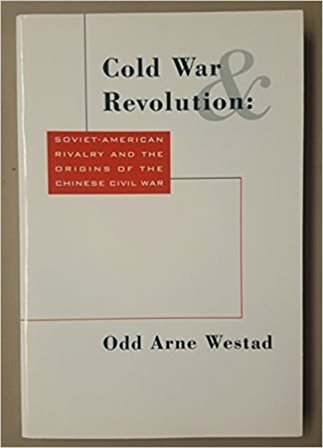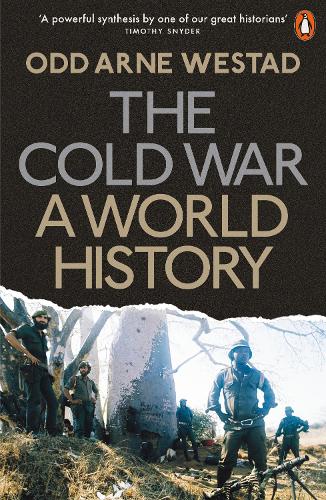
“I wanted to put it within a framework that looks at it in terms of how 20 th-century history, really from the latter part of the 19th, developed first and foremost in terms of ideological divides.” To illustrate the point, The Cold War: A World History, does not begin with the standard retelling of the division of Germany after Hitler’s fall or the Berlin Airlift.

To help weave this new narrative together, Westad attempted to put the Cold War within a broader perspective of 20th-century international history. “What I tried to do in this book is to take some of that wonderful literature, and some research that I've done on my own, and put that together in an overall syncretic account.” While he readily acknowledges that the topic has been the subject of a great deal of scholarship, Westad argues that much of that writing lacks a cohesive narrative about the global scale and ideological roots of the Cold War.

Westad, whose earlier seminal work The Global Cold War: Third World Interventions and the Making of Our Times won Columbia University’s prestigious Bancroft Prize in 2006, has long immersed himself in the historical legacy of the Cold War. It is something that I took on board from my own upbringing, which pushed me towards wanting to know more about the Cold War on a global scale.” Westad’s newest work on the Cold War explores, as he puts it, “this sense of divides, this sense of splits. “The sense of this ideological divide that the majority of the population distrusted the communists and the Communist Party because they were seen as serving the Soviet Union and not serving our country, is something that I very much grew up with,” recalls Westad, whose latest book, The Cold War: A World History (Basic Books, 2017), was published this fall to critical acclaim. Taking their ideological cues from Moscow, Norway’s communists lost much of their immediate post-war political appeal as the party was increasingly seen as a Soviet mouthpiece. Yet, with the onset of the Cold War and Norway’s decision to join 11 other nations to found the North Atlantic Treaty Organization in 1949, the communists’ popularity eroded as tensions with Soviets escalated. Having actively resisted the Nazis during Germany’s brutal five-year occupation of Norway during World War II, the Norwegian Communist Party emerged from the war with a healthy degree of popular support.

“Norway was a kind of frontline state with regard to the Cold War,” says Westad.ĭeeply anchored to the West, Norway nonetheless shared an Arctic Circle border with the Soviet Union along the country’s far north. Lee Professor of US-Asia Relations and Ash Center resident faculty affiliate, the Cold War was an omnipresent fact of life. While the fjords and tundra of this Scandinavian nation may not evoke the iconic images of Berlin’s Checkpoint Charlie or the Korean peninsula’s demilitarized zone, for Westad, the S.T.


 0 kommentar(er)
0 kommentar(er)
